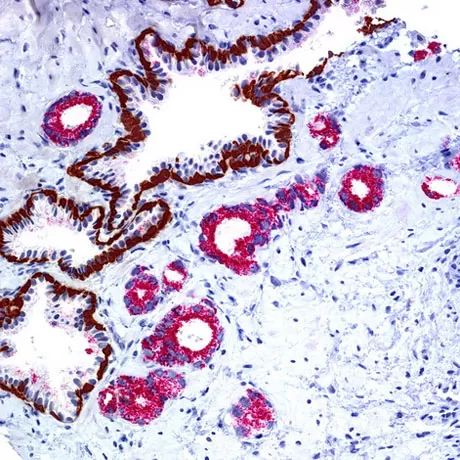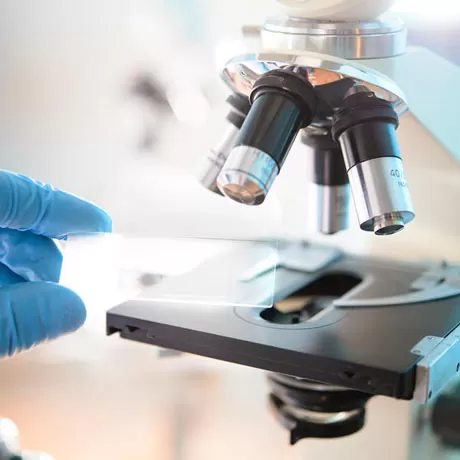
Modern morphological diagnostic is impossible without the application of immunohistochemistry techniques, that is, studies of tissues aimed at revealing proteins through a specific antigen-antibody reactions. Immunohistochemistry methods make it possible to determine the presence or absence of certain proteins within a tissue which is important in establishing a diagnosis, especially in oncology-related cases.
INDICATIONS FOR THE EXAMINATION
The technique enables diagnosis of tumors, identification of their nosologic variant, revealing the primary lesion through metastases, uncovering malignant cell transformation, making forecasts of the tumor disease progress and the possibilities of targeted therapy of the tumor, as well as determining whether tumor cells are resistant to radiotherapy and chemical reagents.
Immunohistochemistry studies are invaluable in the assessment of mammal gland caner status (sex hormone receptors, proliferative activity and Her2 status).
Our Center successfully applies immunohistochemistry techniques to analyze endometrium (mucous lining) of women affected by infertility. This enables us to determine whether there is an inflammation and evaluate the status of sex hormone receptors so that the gynecologist may plan patient therapy.
We also use immunohistochemistry methods to diagnose prostate cancer. Absence of basilar cell markers (high-molecular cytokeratin, p63) in suspicious glands may indicate acinar carcinoma.
IMMUNOHISTOCHEMISTRY STUDIES PERFORMED AT THE RCHCC
Immunohistochemistry studies performed by our Department are completely automated. This enables us to perform diagnostic in line with standard guidelines and eliminates human error.
PREPARING FOR THE TEST
No preparation is required if the material for the study was collected by the consulting physician of the Center.
Otherwise (if the material was collected at another medical institution) the patient must present:
- paraffin blocks;
- fullest possible accompanying documents (a copy of the referral/report, discharge summary, etc.); - to be able to interpret tissue-level changes, the anatomopathologist should have clinical and laboratory study results available.
HOW DO I GET ADVICE IN THE RCMC
- If you have any questions relating to counseling, please call the Contact Center.
- Please deliver preparations to the RCHCC (the Pathological Department) from 8:00 to 15:00 on weekdays.
- Please bring your passport.




